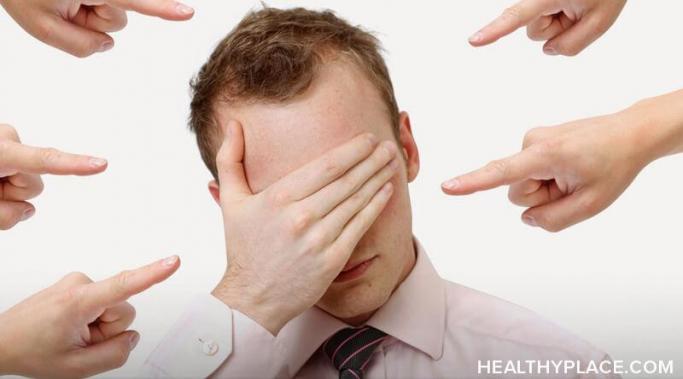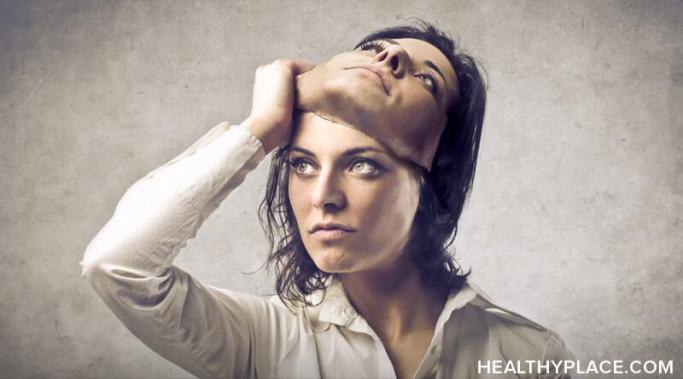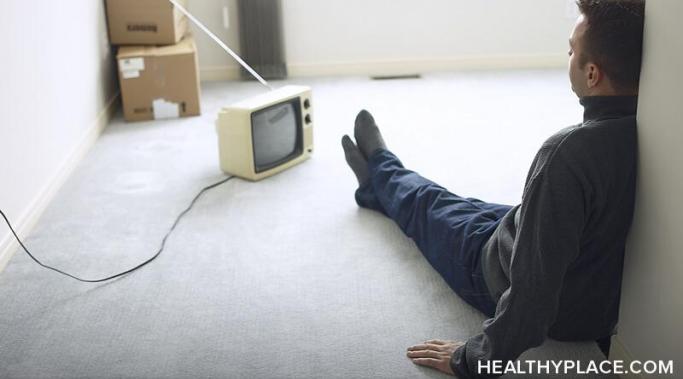Is it possible to destigmatize mental illness by refusing to use the word "stigma?" If you’re having a discussion about mental illness, it’s almost inevitable someone will mention stigma. When talking mental health, stigma refers to the misinformed perceptions and ideas about mental illness and those with it. It’s a big component in why people feel ashamed to have a mental illness and suffer in silence instead of seeking mental health treatment and understanding that mental illness is just an illness. Since there is still widespread misinformation, it’s not surprising the word "stigma" comes up often. What is surprising, however, is that there are those who say stigma does not exist, we should stop using the word "stigma," and I’ve even seen the claim that it’s offensive. Can we destigmatize mental illness by not using the word "stigma?"
Dealing with Stigma
Using mental illnesses as insults is invalidating and harmful. These days, it’s hard to go far without coming across the topic of mental health and mental illness. Considering it’s still such a taboo subject that people shy away from, this seems like something we should be rejoicing over as advocates and activists — and I would, but for the fact that it’s still being spoken of in negative, stigmatizing words. Although people are mentioning mental illness seemingly more and more, all it’s doing it adding to the already existing stigma since mental illness is being used to insult people.
The idea of "normal" mental health affects me as someone who struggles with mental illness. I often fall prey to the idea that mental health is something I can only achieve by becoming more like “normal” people. In an age of health coaches and self-help gurus, it can be easy to believe that the ability to conform to a more widely accepted lifestyle is the answer to all mental health problems. Unfortunately, rather than offering a solution, the myth of normal mental health creates more stigma around mental illness.
Some people with mental illness isolate themselves to feel protected from mental health stigma. Because stigma labels someone as an outlier, many people withdraw when feeling stigmatized for their mental health. Apart from the stigma of mental illness and self-stigma making us feel poorly about ourselves in general, seeing stigmatizing ideas all over the media, hearing them spoken to us, or even thinking them to ourselves can amplify the sense of isolation that mental illness already brings. We need ways to counter the isolation that mental health stigma brings as loneliness can lead to hopelessness and negatively impact recovery.
As exciting as the holiday season can be, it can also bring up self-stigma about mental health problems. Spending more time with friends and family can lead to a lot of comparisons that may cause shame about one’s position in life. As someone who deals with mental health problems, I sometimes feel like a failure because I think I should be doing so much more, but mental illness has gotten in the way. Dealing with mental health self-stigma is always hard, and the holidays tend to be particularly difficult.
You may want to share your mental health story, but feel afraid even though many people have opened up about mental illness. We know that talking about mental health encourages others to do so as well. That sense of community and having a precedent of someone else talking about mental illness may have paved the way for you. However, seeing the negative reactions stories about mental illness have a habit of getting can be a deterrent. Mental health stigma can cause a lot of fear and anxiety. Here are some tips on how to get past that fear of stigma when you want to share your mental health story.
News coverage that stigmatizes mental illness often occurs after events like mass shootings and other tragedies. The reporters often bring up mental health and how that may have played a part in what happened. Whether or not there is even any initial evidence of mental illness, the fact that someone could commit such an atrocity invokes assumptions of mental instability. People then tend to associate that idea with mental illness as a blanket statement, despite how complex and different individual mental illnesses are. With these conversations inevitably comes misinformation and stigma, and when these news stories saturate our social media and even traditional media sources, it can be tough to contend with as someone with a mental illness. News coverage that stigmatizes mental illness creates problems for society and individuals, and here are two ways it happens.
Stigma from within the mental health community is the last place I expected to come across stigma for mental illnesses. Last Wednesday, I went to a mental health event that was about mental illness in general, as opposed to focused on one kind or another. I was at the mental health fair, called MindFest, with the Canadian BFRB Support Network (CBSN), Canada’s only non-profit geared towards raising awareness and providing resources for people with body-focused repetitive behaviors (BFRBs). Since BFRBs are a lesser-known group of disorders, I expected questions, but I didn’t expect stigma from within the mental health community -- the people in attendance.
We can be broken down by mental health stigma. Mental health stigma surrounds us everywhere, whether we’re aware of it or not — in movies, television shows, news, literature, and the list goes on. Despite each source generally rehashing the same stigma-fuelled notions and images (or perhaps because of it), the fact that there’s so much stigma can be really draining and we ought to take a moment to practice self-care before mental health stigma breaks us down.
We need to take care of ourselves when facing mental health stigma. A little while ago, I was accused of pandering to mental health stigmatizers because in the blog in question I wasn't going for a throwdown against them. There is a reason for that, which is, even though I share tips how to fight stigma and approach stigmatizers, my main concern lies with the mental health community and the damage that can be done to the people in it when they see stigma all around them. We need to take care of ourselves.









